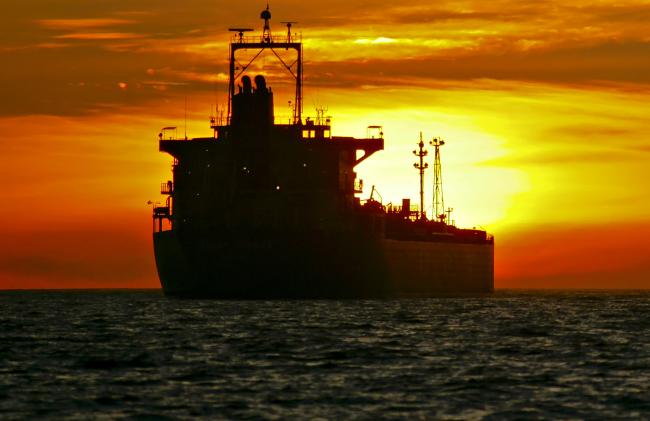(Bloomberg) -- They are slowly plowing their way across thousands of miles of ocean toward America’s Gulf of Mexico coastline. As they do, twelve empty supertankers are also revealing a few truths about today’s global oil market.
In normal times, the vessels would be filled with heavy, high sulfur Middle East oil for delivery to refineries in places like Houston or New Orleans. Not now though. They are sailing cargo-less, a practice that vessel owners normally try to avoid because ships earn money by making deliveries.
The 12 vessels are making voyages of as much as 21,000 miles direct from Asia, all the way around South Africa, holding nothing but seawater for stability because Middle East producers are restricting supplies. Still, America’s booming volumes of light crude must still be exported, and there aren’t enough supertankers in the Atlantic Ocean for the job. So they’re coming empty.
“What’s driving this is a U.S. oil market that’s looking relatively bearish with domestic production estimates trending higher, and persistent crude oil builds we have seen for the last few weeks,” said Warren Patterson, head of commodities strategy at ING Bank NV in Amsterdam. “At the same time, OPEC cuts are supporting international grades like Brent, creating an export incentive.”
The U.S. both exports and imports large amounts of crude because the variety it pumps -- especially newer supplies from shale formations -- is very different from the type that’s found in the Middle East. OPEC members are likely cutting heavier grades while American exports are predominantly lighter, Patterson said.
Gasoline Glut
By industry standards, American oil is considered light and low in sulfur, making it great for churning out gasoline, with the result that a glut of the automotive fuel is starting to build up. By contrast, Middle East crude often needs more processing -- not a problem for Gulf of Mexico plants that were designed specifically for that task -- but it can have a smaller gasoline yield.
“There is still going to be a lot of growth from U.S. tight oil this year,” said James Davis, director of short-term global oil service at Facts Global Energy. “This will continue to push U.S. exports up.”
Shippers are counting on the U.S. exports to help the tanker market withstand supply restrictions by the Organization of Petroleum Exporting Countries and allies including Russia. Industry analysts, who actually raised their estimates for what they think the ships will earn this year after the OPEC+ pact was announced in December, are citing rising American shipments as a contributing factor.
There are usually three or four empty supertankers -- very large crude carriers in industry jargon -- that would sale empty to the U.S. at any one time, according to shipbrokers.
The shift has produced knock-on effects around the shipping market. Daily earnings for the VLCCs, which can haul two million barrels of oil, on the benchmark Middle East-to-China route doubled to $29,337 in the past week, according to Baltic Exchange data.
“Following a fixing frenzy from the U.S. Gulf Coast late last week, most available tonnage in the Atlantic basin has been soaked up,” said Espen Fjermestad, an analyst at Fearnley Securities AS in Oslo. “With ships ballasting West, rates have shifted up also in the East.”
